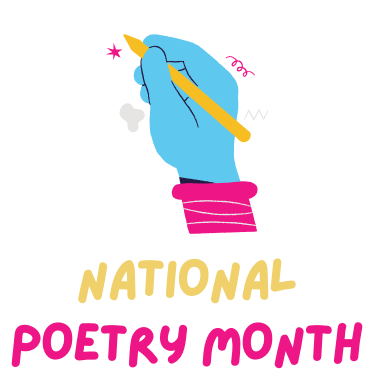Poetry: Try it, you might like it
April is National Poetry Month

March 25, 2021
Some people view poetry as random collections of words that don’t make sense, and a version of writing that is twisted and confusing. However, coming from someone who has a strong passion for reading and writing poetry, I’m going to explain why it is so much more than that.
Poetry isn’t just a passage of complex words meant to confuse you. Poetry is a story with a smaller amount of words, that gives you the same feelings and ideas. That’s why when you’re reading stories in language arts class and the teacher asks, “As we read the story, what is the meaning behind the sun rising slowly?” “How does the sun rising slowly relate to the character’s personal life?” That is a form of poetry. It can mean that as the character is watching the sun rising slowly, she feels as though she is watching herself get through a rough patch. The sunrise is being compared to the character’s life. However, some people get frustrated while reading poetry, because they want to know the meanings behind everything right away. They don’t want to have to break each little part of the story apart and figure it out. In reality, poetry changes with every person who reads it. Certain words evoke different emotions, different imagery leads to different conclusions. Poetry is subjective.
In the poem, “Introduction To Poetry” by Billy Collins he says, “I want them to waterski across the surface of a poem, waving at the author’s name on the shore. But all they want to do is tie the poem to a chair with rope, and torture a confession out of it” (Collins 9-14). In Collins’ poem, readers see a great example of how people view poetry. Along with that quote, comes my personal “conspiracy theory.” I believe that there are some people who completely understand poetry, but are too afraid to read and/or write it because they don’t want to have to face their true thoughts about the topics in their life.
Poetry shouldn’t be looked at with fear or confusion. I recommend everyone try writing poetry. It’s very therapeutic, and even if you’re someone who doesn’t like writing, poetry can be whatever you want. It’s free writing, but you get to disguise your topic and hide it under tough, complex words that make it so when people are reading, they might not understand. If you hate writing, but feel like you might have an interest in poetry, I’d recommend asking someone for some good authors, or passages that they find easy and interesting to read. Why not try it out, and see if you like it!
